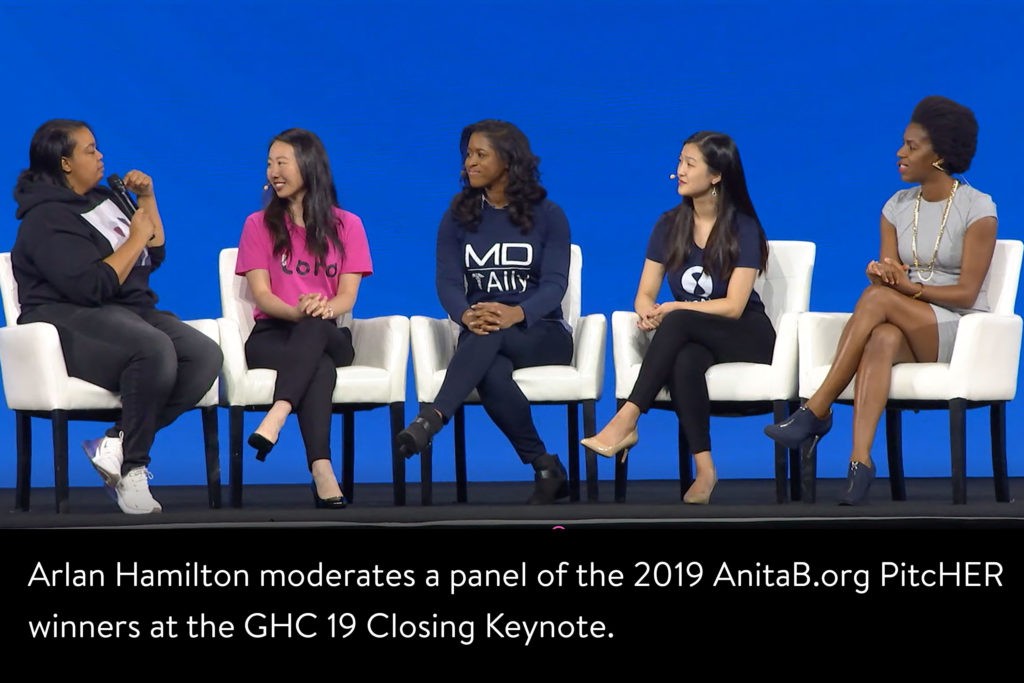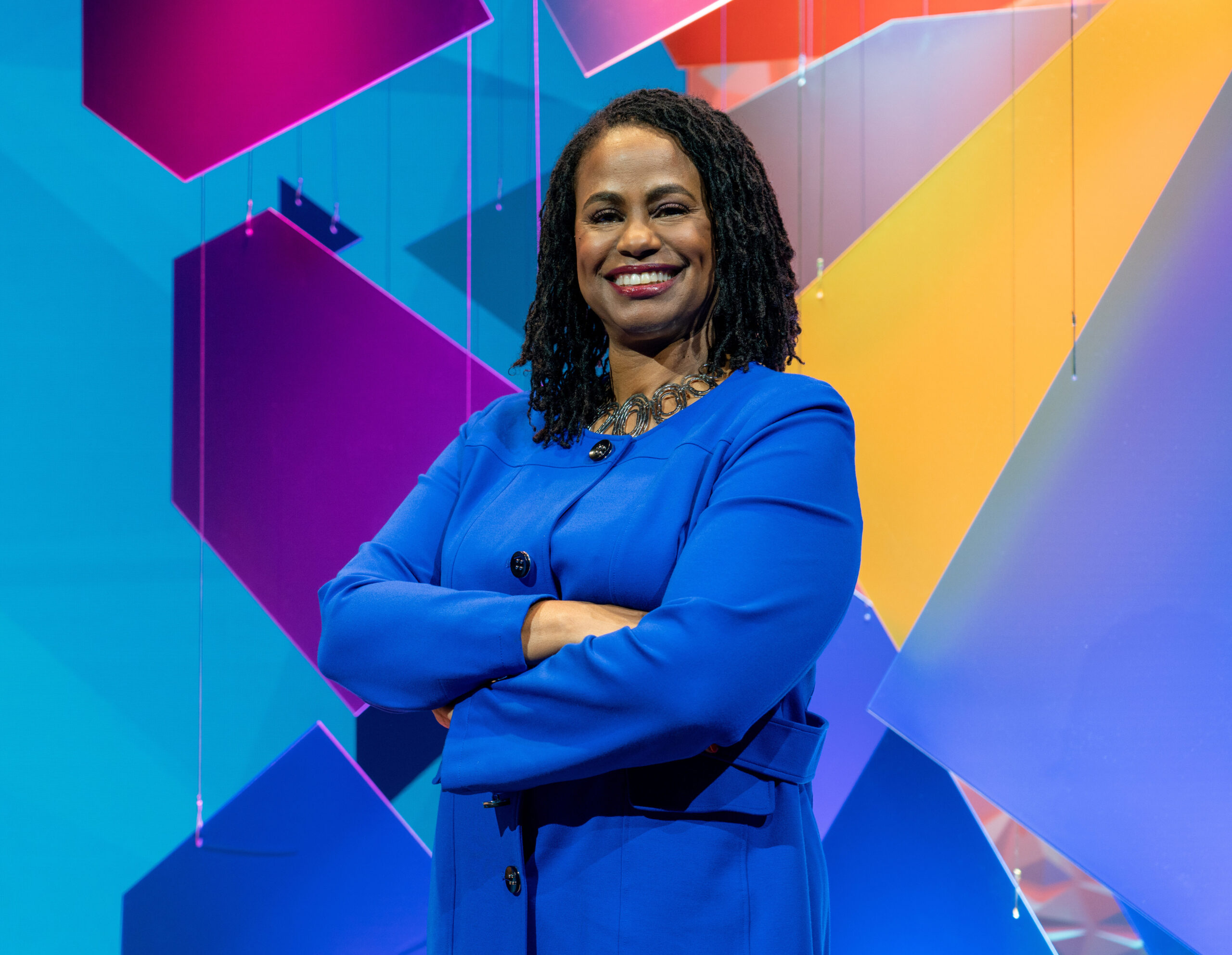Meet Brenda Darden Wilkerson, AnitaB.org President & CEO

Meet Brenda Darden Wilkerson, AnitaB.org President & CEO
On October 1, 2017, AnitaB.org will welcome our new President and CEO, Brenda Darden Wilkerson.
Before joining AnitaB.org, Brenda was Director of Computer Science and IT Education for Chicago Public Schools (CPS). At CPS, Brenda founded the original “Computer Science for All” initiative, building computer science classes into the curriculum for every student. That program has touched the lives of more than 1.5 million students in Chicago and New York City, and attracted the attention of the Obama administration, which modeled some of its work on the Chicago initiative.
We spoke with Brenda recently to talk about her new role with AnitaB.org, and the path that brought her here.
What led you to a career in computer science?
Before I went to college, I thought I wanted to be a doctor. As an undergraduate at Northwestern University, I majored in pre-med biomedical engineering. As luck would have it, all engineers had to take two programming classes. That’s how I learned about programming and computer science in the first place.
To me, my experience really brings home how important it is for young women and members of underrepresented groups to get exposed to computer science early on, so they can make discoveries that lead them to careers they love. Obviously, my late discovery changed my life; I saw the light and became a computer scientist… but I wonder what would have happened if I had learned about computing a little bit earlier.
What inspires your work in diversity and inclusion?
When I first started out in tech, many times I was the only woman on my team, and I was definitely the only woman of color. The culture in computer science obviously revolves so much around men, and that was often difficult to navigate. But, from that experience, I learned just how important it is for our culture to be supportive of everyone who wants to be able to come in and participate.
What we found when we developed Computer Science for All is that students thrive when they have a creative outlet. In our new classes, they get to understand that they can be producers and not just consumers; computer science is perfect for that. We’ve seen students, once they got a taste of computer science, become creators of products, creators of services, and really grasp what it meant to solve problems in their school, in their community, and for other people. It’s really important, I believe, that to develop a solid global citizenry, we must teach people how to create and not just consume.
What makes Computer Science for All important for you, personally?
I first got into education after working in the tech world. I knew the power that comes with becoming a technologist. What I found masquerading for computer science education was baseline digital literacy rather than access to true technical fluency. I also knew, from my own experience, how important it was for kids to get meaningful exposure to tech as early as possible.
One of the challenges is that computer science is often an elective course, and elective subjects are the first things to disappear when the budgets are cut. When we started Computer Science for All, only certain students at highly selective schools got any exposure to computer science, and we knew it was critical that everyone have access to computer science — why should something so essential be reserved for a few? It was clear to us that the only way to fix the accessibility issue, to truly democratize computer science education, was to make computer science part of the core curriculum. We did that this past year by passing the first pure computer science graduation requirement. Now every student has to earn at least one credit of computer science in order to graduate, and we have begun exposing students to related skills as early as pre-kindergarten.
That was the beginning of making computer science education available for all 400,000 students in Chicago Public Schools. The exciting part is that we’ve been able to join forces and work with other districts across the country to help make the computer science courses more commonplace. Computer science advocates are working hard to bring these essential skills to schools and districts across our nation. It’s very exciting!
There must have been obstacles to launching the program. How did you get past them?
We had to, of course, find very strong teachers with a love for computer science or at least the desire to learn. We also had to partner with school leaders who would trust us and step out and say yes to doing something that had never been done. We were lucky to have counselors, administrators, and many other key people work with us and drive innovation in their schools. On top of that, we needed partners. Universities were key in helping us make sure our teachers were trained. Industry leaders were key to encouraging people in education to understand that change was possible and indeed necessary. We could not have enjoyed the success we’ve seen if it were not for the hard work and collaboration of many dedicated educators and partners.
The truth is that this whole effort has been a labor of love. And for me, the most important thing I’ve learned through all of it is that nothing is impossible. No matter how many people try to tell you that what you envision can’t be done, it doesn’t have to be true. You don’t have to have all the resources you need when you start. But passion and determination and partnership are the three threads that, when woven together, can make anything happen. At the end of the day, we are serving our communities best when we set out to do something really hard and we achieve it. Then others know they can do the same.
How did it feel when the White House wanted to share what you’ve learned?
We initially thought Computer Science for All would touch the lives of the 400,000 CPS students. So, it’s really hard to describe just how exciting it was when an amazing leader like President Obama saw that vision and brought together such an amazing group of people from all over the country to expand computer science education across the country, using the name “Computer Science for All.” I will never forget how much hope we felt, how grateful we were —and are — for his leadership.
What do you love about being a technologist?
There are so many things I love about computer science, especially just how creative it is. People don’t think of it that way, but you’re creating things every single day. You get to look at the world through a very interesting lens that can ultimately affect millions of people. But what I like the most is that I’m always learning something new, always having the opportunity to be a problem solver. And that ability to problem-solve not only affects my professional life but my personal life as well.
What would you like to see change for women in tech in the next 10 years?
I want to see what Anita Borg saw: I want to see 50/50. I want to see a culture where we don’t even have to discuss gender diversity anymore, a place where women are accepted and nurtured and appreciated, and they get the credit for the work that they do, where every woman can realize her full potential and our world can benefit from it, as well. I want all the women who are coming to Grace Hopper Celebration to be confident enough in their future that they can say “yes” to going forward in tech.
I’m excited that we have the ability to support women from all walks of life, in all stages of their journeys, with AnitaB.org programs. We can show people that there are multiple entry points into tech, that there is not just one path to developing a satisfying tech career. We can help give them a voice, and we can be that support system for them. That’s what will make Anita’s 50/50 dream a reality. And I am extremely proud to join an organization that is so well positioned to have even greater impact on the tech industry and the lives of others in underrepresented communities.
Meet Brenda during GHC at her featured session on Wednesday, October 4, 2017, at 1:30 p.m. in OCCC Valencia Ballroom.

